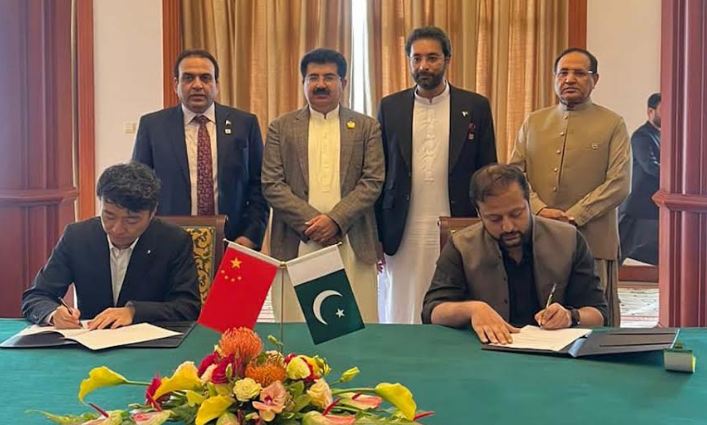In a recent development, Muhammad Sadiq Sanjrani, Chairman of the Senate of Pakistan, led a Pakistani delegation to Beijing to witness the signing of a Memorandum of Understanding (MOU) between TGOOD, a prominent Chinese company, and Pakistan’s REC Group.
This collaboration marks a strategic partnership focused on technology transfer across various sectors, aligning with President Xi’s sustainable green development initiative from the 3rd Belt and Road Forum. The partnership includes areas such as hydrogen vehicle technology, hydrogen filling station infrastructure, electric vehicle (EV) production, battery production, recycling solutions, and EV charging infrastructure development.
The background to this partnership lies in Pakistan’s urgent needs for fuel security, improved trade balance, a current account surplus, and a substantial reduction in pollution. Transportation significantly contributes to pollution in Pakistan, making a transition to alternative fuels crucial. However, the scarcity of charging stations hinders the adoption of alternative fuel vehicles, and limited investments in such infrastructure are primarily due to the lack of such vehicles.
TGOOD, a global leader in EV charging infrastructure, has a significant presence with 316,000 EV charging station units and about 20,000 stations worldwide, setting itself apart through its unique approach.
The joint venture with REC Group in Pakistan represents a substantial step forward. TGOOD’s commitment to expansion in Pakistan, facilitated by REC Group integrators, is underpinned by a comprehensive Strategic Partnership Framework Agreement, covering full technology transfer. Besides electric vehicles, TGOOD will also lead the development of hydrogen fueling infrastructure in Pakistan. The joint venture aims to explore regional export opportunities for products manufactured in Pakistan.
The primary mission of this joint venture is to address the challenges hindering the transition to alternative fuels in Pakistan. Through strategic investments in EV components, charging stations, and export-driven growth, the partnership aims to resolve these issues and promote the development of a sustainable and green transportation ecosystem in Pakistan.
















